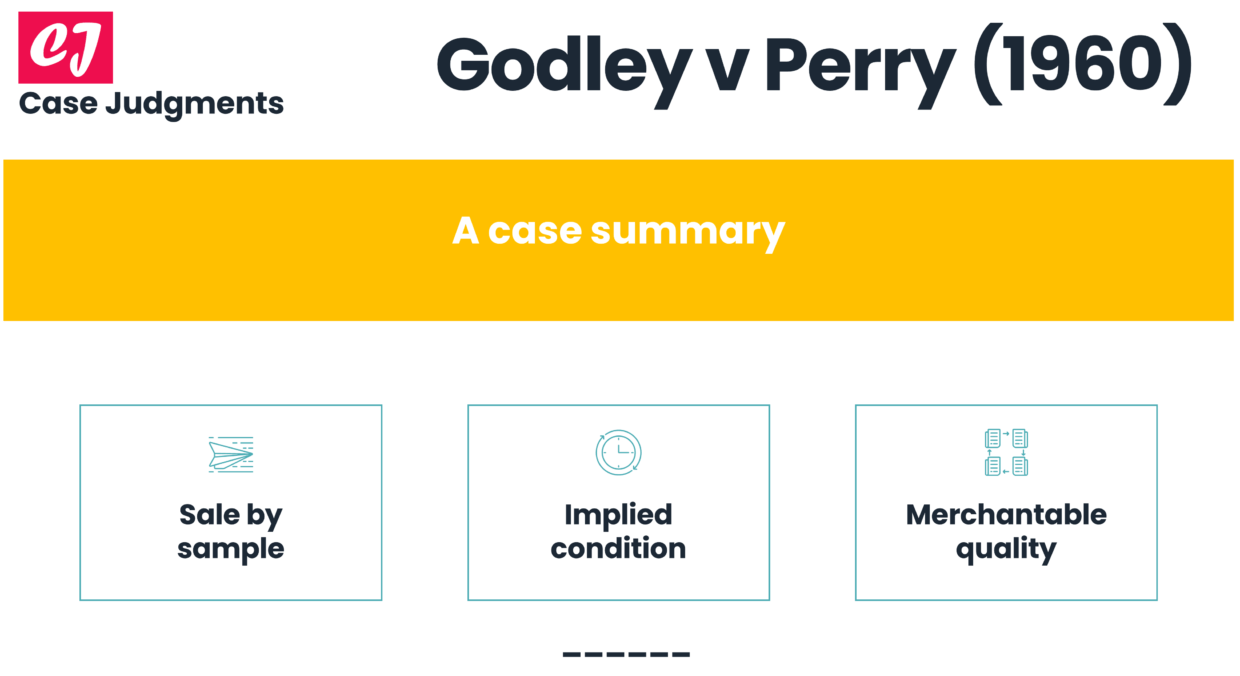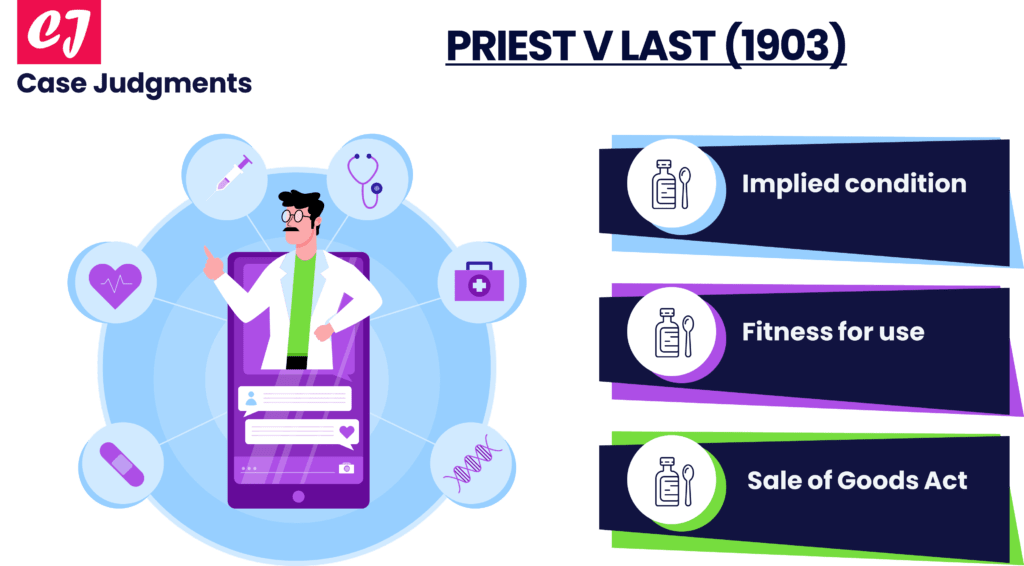
Godley v Perry (1960): A Quick Summary
Case name & citation: Godley v Perry [1960] 1 WLR 9; [1960] 1 All ER 36 (Q.B.D.)
Court and jurisdiction: Queen’s Bench Division, England and Wales
Year of the case: 1960
Area of law: Implied condition (bulk should correspond to sample)
What is the case about?
This case of Godley v Perry illustrates an example of implied conditions in a contract of sale by sample.
Facts of the case (Godley v Perry)
A plastic toy catapult was purchased by the claimant, a six-year-old child, from Perry, the first defendant, who managed a newsagent shop. In the process of using the catapult, the claimant’s eye was lost. He filed a lawsuit against Perry for violating the implied terms of Section 14(2) and (3).
Perry had purchased the catapults from a wholesaler on the basis of a sample. He had pulled back the elastic on the sample catapult to test it, but no flaw had been discovered. Perry then brought the wholesaler into the proceedings, claiming a violation of the terms of Section 15.
The wholesaler had purchased his stock of catapults through a sample from another wholesaler, who had procured the catapults from Hong Kong. The first wholesaler tried to bring the second wholesaler into action, alleging a similar violation of Section 15.
Issues raised
Was there a breach of Sections 14 and 15?
Could the claimant recover damages from Perry?
Could the first wholesaler and the second wholesaler be held liable?
Governing rules of law
Section 14(2) and (3) of the Sale of Goods Act 1979 state that in every contract of sale of goods in the course of business, the goods should be of satisfactory quality and that they must be fit for a particular purpose for which they are being bought.
In addition, Section 15 of the Sale of Goods Act 1979 deals with the implied condition in a contract for sale by sample. When products are purchased in bulk and the buyer has only tested or inspected a small sample of those goods, the seller is required to ensure that each item in the bulk is of the same quality as the sample that was tested or examined. The seller must ensure that the products will be free from any defect which would not be apparent on a reasonable examination of the sample.
Judgement of the Court in Godley v Perry
It was determined that the claimant could obtain damages from the first defendant for breach of Section 14 because the catapult was not of merchantable quality or suitable for the use for which it had been purchased.
Secondly, the Court held that the first defendant could claim damages from the first wholesaler, who in turn could recover the damages from the second wholesaler, in both situations because there had been a breach of Section 15, which was implied in the relevant contract. The defect in the goods could not be found by a fair examination of the sample.
List of references:
- https://www.hzu.edu.in/uploads/2020/10/business-law.pdf
- https://www.lawteacher.net/free-law-essays/commercial-law/law-has-imposed-more-responsibility-on-the-seller-to-protect-buyers-commercial-law-essay.php
You might also like:
More from sale of goods:

